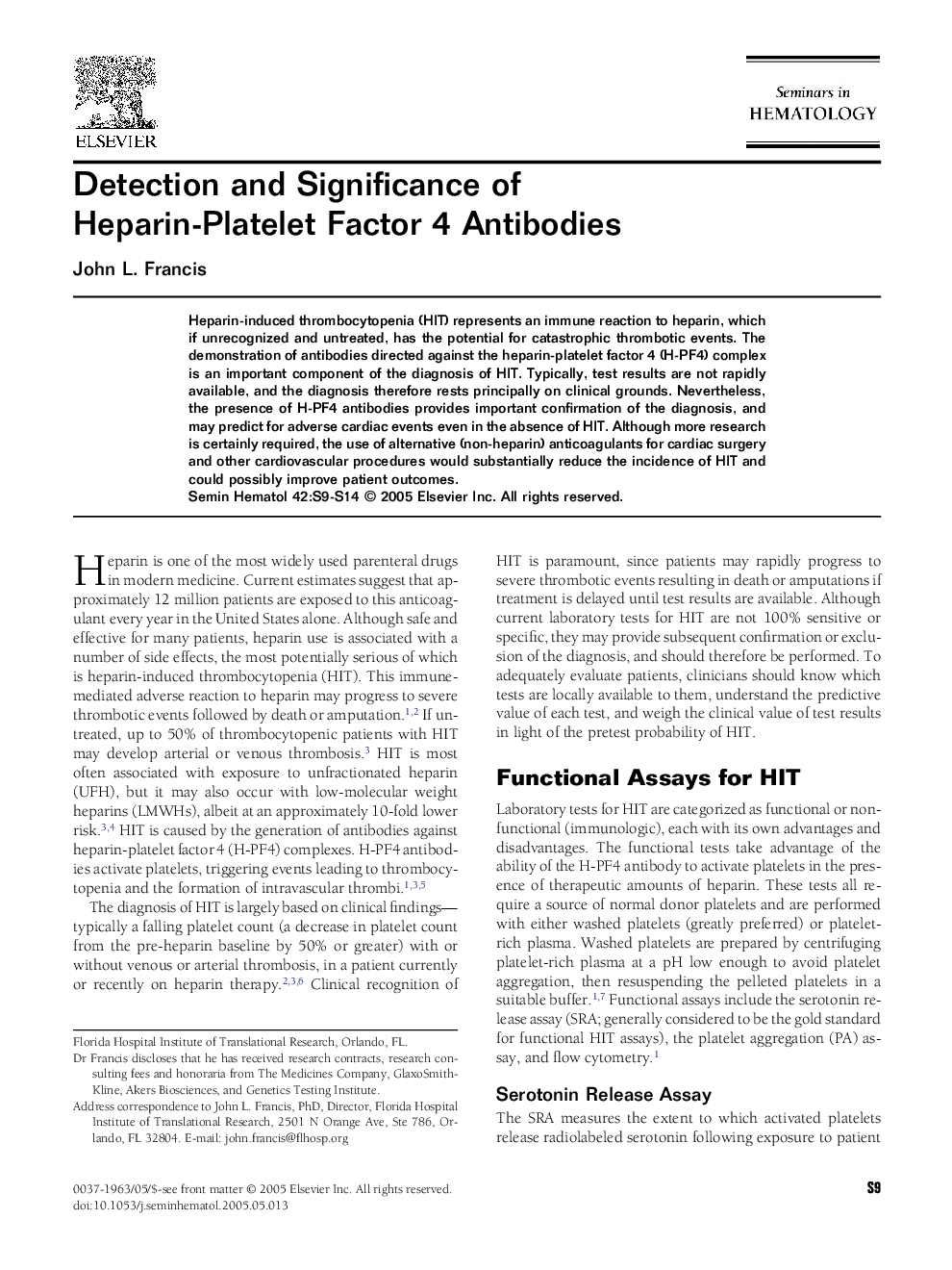| Article ID | Journal | Published Year | Pages | File Type |
|---|---|---|---|---|
| 9258339 | Seminars in Hematology | 2005 | 6 Pages |
Abstract
Heparin-induced thrombocytopenia (HIT) represents an immune reaction to heparin, which if unrecognized and untreated, has the potential for catastrophic thrombotic events. The demonstration of antibodies directed against the heparin-platelet factor 4 (H-PF4) complex is an important component of the diagnosis of HIT. Typically, test results are not rapidly available, and the diagnosis therefore rests principally on clinical grounds. Nevertheless, the presence of H-PF4 antibodies provides important confirmation of the diagnosis, and may predict for adverse cardiac events even in the absence of HIT. Although more research is certainly required, the use of alternative (non-heparin) anticoagulants for cardiac surgery and other cardiovascular procedures would substantially reduce the incidence of HIT and could possibly improve patient outcomes.
Related Topics
Health Sciences
Medicine and Dentistry
Hematology
Authors
John L. Francis,
